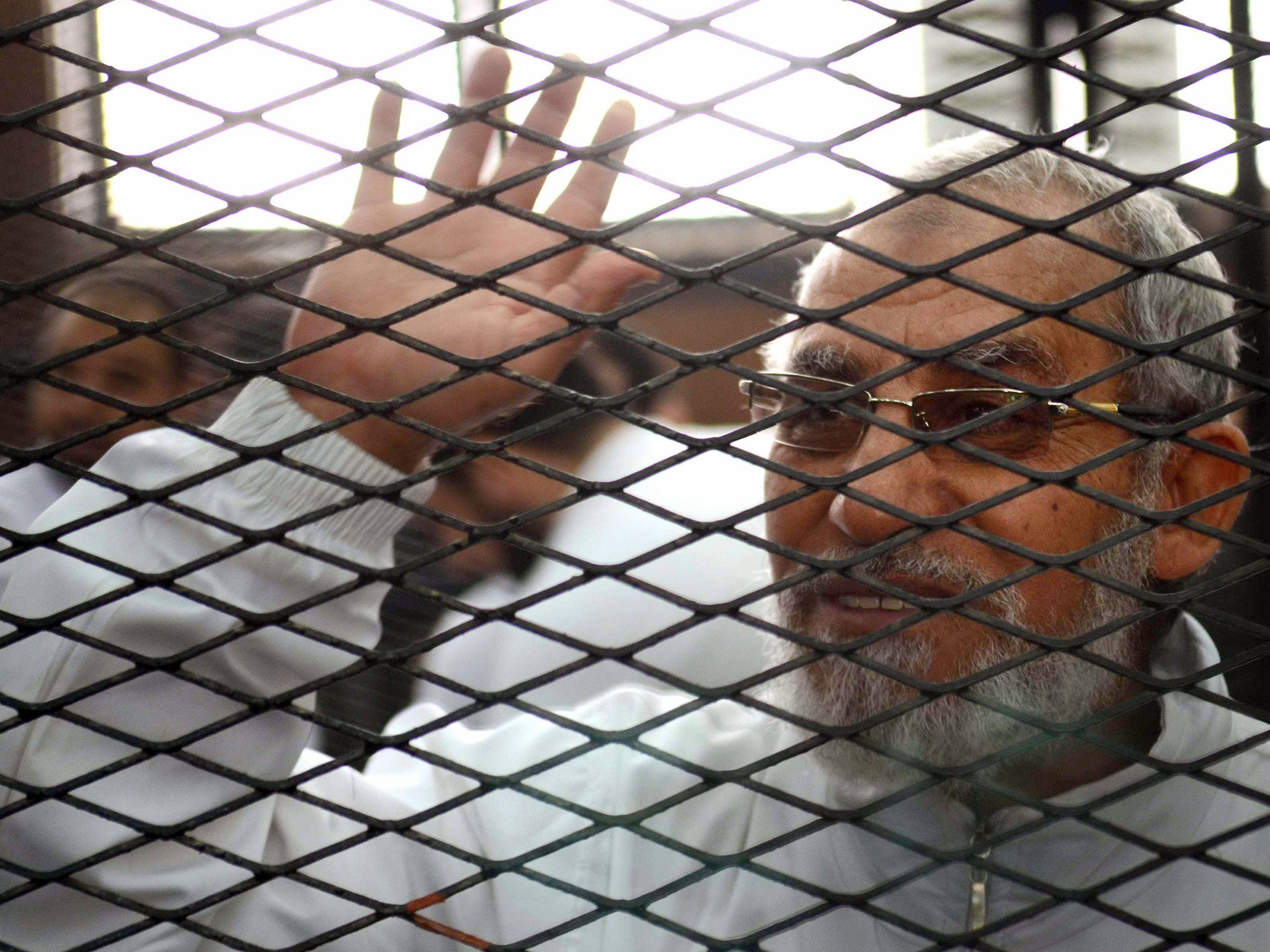Muslim Brotherhood leader Mohamed Badie jailed for life in Egypt

The Muslim Brotherhood’s top official Mohamed Badie and 14 others were sentenced to life in jail today on charges of murder and inciting violence during a protest near Cairo last year. The court session had been designated for witness statements to be heard but the judge issued a verdict.
Badie, the general guide of the Brotherhood, is among hundreds of the group’s members who were sentenced to death in mass trials this year, which drew criticism from Western governments and human rights groups.
The death sentences are subject to appeal.
In what is known as the Bahr al-Azam case, Badie and the other defendants were convicted of the murder of five people and the attempted murder of 100 others during violence that broke out in Giza on 15 July 2013.
Then-army chief Abdel Fattah al-Sisi toppled President Mohamed Morsi of the Muslim Brotherhood on 3 July 2013 after protests against his rule.
Egyptian authorities have since arrested thousands of Brotherhood supporters, sentencing hundreds to death or long prison sentences, while Egypt's oldest Islamist movement has been banned and designated a terrorist organisation.
Sisi, who went on to win a presidential election, vowed in his campaign that the Brotherhood, once among Egypt's most formidable political movements, would cease to exist under him.
Morsi, freely elected in 2012, is also on trial on a variety of charges including inciting violence and conspiring with a foreign power, and could face the death penalty if convicted.
Egypt's Brotherhood renounced violence as a means of political change decades ago and argues that it has been robbed of political power won fairly at the ballot box.
REUTERS
Subscribe to Independent Premium to bookmark this article
Want to bookmark your favourite articles and stories to read or reference later? Start your Independent Premium subscription today.

Join our commenting forum
Join thought-provoking conversations, follow other Independent readers and see their replies